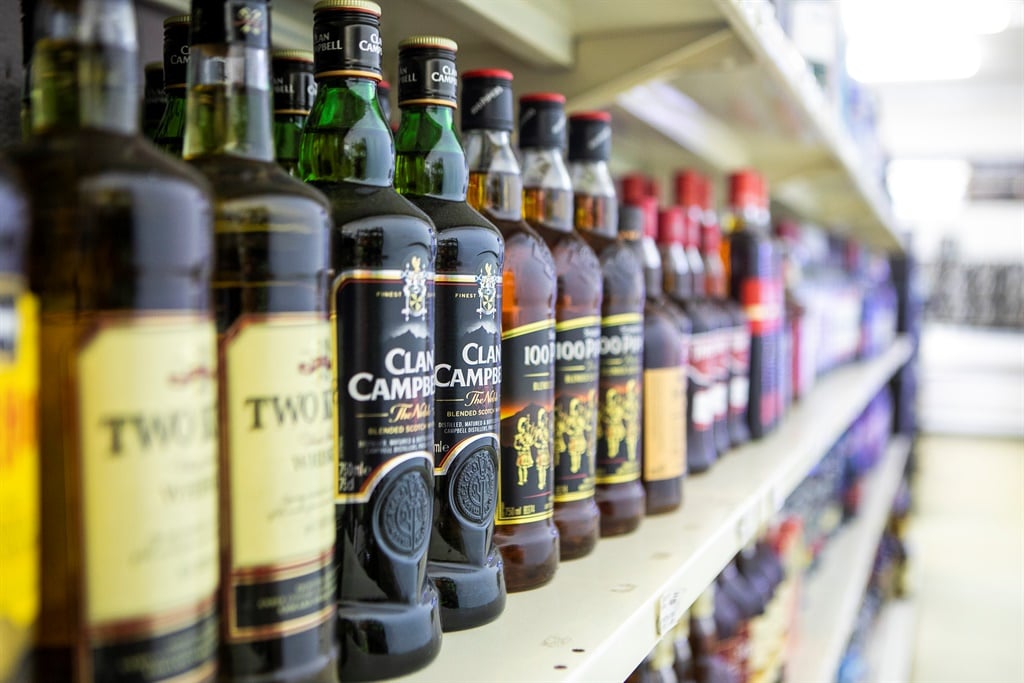
- In light of improvements in tax revenue collections in recent months, government has withdrawn a proposal to introduce tax measures to raise revenue by R40 billion over the next four years.
- However, this year it will implement increases to indirect taxes – mainly an 8% increase in excise duties on tobacco and alcohol as well as inflation-linked increases in the fuel levy.
- Tax revenue estimates are R99.6 billion higher than what was projected in October 2020 – reducing the tax revenue shortfall to R213 billion.
South Africans have been spared increases on their direct taxes, but they will have to fork out more money for alcohol and tobacco products.
Finance Minister Tito Mboweni on Wednesday tabled the national budget where he announced government will withdraw the previous proposal to raise R40 billion over four years - in a bid to support economic growth and ease financial pressures on households and businesses.
Treasury noted that revenue collections fared better than expected – due to a recovery in consumption and wages in recent months as well as corporate income tax revenue raised from the mining sector, on the back of higher commodity prices. Collections for the 2020/21 fiscal year are thus expected to be R99.6 billion higher than projected in the Medium-Term Budget Policy Statement (MTBPS) - in line with economists' expectations. This means that the tax revenue shortfall has been lowered from the R312 billion previously estimated to about R213 billion.
In a note issued ahead of the budget, economists from Momentum Investments said that tax revenues from personal income tax, corporate income tax and VAT and fuel levies were faring well against their targets. However, excise duties on alcohol and tobacco were lagging behind – mainly due to sales bans associated with lockdown restrictions.
While government will not introduce new measures to raise revenue through direct taxes this year it has indicated there will be an above-inflation increase in personal income tax brackets and rebates - which will reduce revenue by R2.2 billion. It will also implement an 8% increase in alcohol and tobacco excise duties, according to the budget review.
Treasury indicated the purpose for the excise duties on alcohol and tobacco is to reduce the consumption of these products and improve population health.
Government also plans to introduce an export tax on scrap metal. From 7 April fuel levies will also increase by 27 c/l - namely 15 cents per litre for petrol and diesel, an above inflation increase of 11c/l in the Road Accident Fund levy as well as a 1c/l for the carbon fuel levy.
All tax measures implemented for 2021/22 is expected to raise R1.37 trillion, according to the budget review.
Corporate income tax reforms
Treasury noted that government is looking into lowering the corporate income tax rate - of 28% - which is among the highest in the world. But to do this it will have to reduce the number of tax incentives and expenditure deductions, among other things.
Mboweni said the corporate income tax rate will be lowered to 27% for companies "with years of assessment commencing on or after 1 April 2022".
"We will give consideration to further rate decreases to make our tax system more attractive. We will do this in a revenue-neutral manner," said Mboweni.
The changes are expected to enhance efficiency, transparency and fairness in the business tax system, while facilitating economic growth through improved investment and competitiveness,the budget review indicated. According to Treasury – reducing the rate will have a positive effect on wages and employment, while promoting additional investment.
As for personal income taxes, Treasury noted that increases would simply add pressure to households negatively impacted by the pandemic and would undermine" the chance of a strong economic recovery.
Government aims to reduce the personal income tax rate over time – by increasing the tax base by focusing on economic growth which will trigger job creation.
Other tax measures addressed in the budget review are:
- An inflationary adjustment to medical tax credits - which will increase from R319 to R332 for the first two members, and from R215 to R224 for all subsequent members.
- Carbon tax – rate increased on 1 January 2021, by 5.2%, from R127 to R134 per tonne of carbon dioxide equivalent. Increase of 1c to 8c/l for petrol and 9c/l for diesel from 7 April 2021.
- Excise duty on electronic nicotine and non-nicotine delivery systems to be introduced later this year- following public consultations.
- Bio-based plastic bags - 12.5 c/bag, implementation as per the Taxation Laws Amendment Bill
- Financial sector levies - bill to be tabled early 2021.
